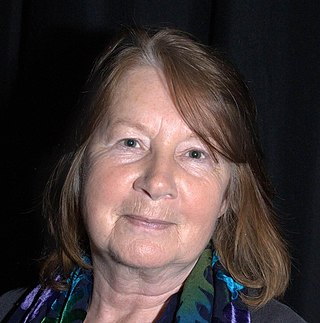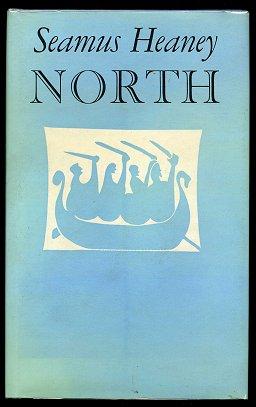Related Research Articles

Seamus Justin Heaney was an Irish poet, playwright and translator. He received the 1995 Nobel Prize in Literature. Among his best-known works is Death of a Naturalist (1966), his first major published volume. Heaney was and is still recognised as one of the principal contributors to poetry in Ireland during his lifetime. American poet Robert Lowell described him as "the most important Irish poet since Yeats", and many others, including the academic John Sutherland, have said that he was "the greatest poet of our age". Robert Pinsky has stated that "with his wonderful gift of eye and ear Heaney has the gift of the story-teller." Upon his death in 2013, The Independent described him as "probably the best-known poet in the world".

Paul Muldoon is an Irish poet. He has published more than thirty collections and won a Pulitzer Prize for Poetry and the T. S. Eliot Prize. At Princeton University he is currently both the Howard G. B. Clark '21 University Professor in the Humanities and Founding Chair of the Lewis Center for the Arts. He held the post of Oxford Professor of Poetry from 1999 to 2004 and has also served as president of the Poetry Society (UK) and Poetry Editor at The New Yorker.

Richard Rowley was the pseudonym of Richard Valentine Williams, born at 79 Dublin Road, Belfast, Ireland, who wrote poetry, plays and stories.
Francis Arthur Ormsby is a Northern Irish author and poet.
Peter McDonald is a poet, university lecturer, and writer of literary criticism. He holds the post of Christopher Tower Student and Tutor in Poetry in the English Language at Christ Church, a college of the University of Oxford.

Michael Longley,, is an Anglo-Irish poet.
Ciaran Gerard Carson was a Northern Ireland-born poet and novelist.
The Belfast Group was a poets' workshop which was organized by Philip Hobsbaum when he moved to Belfast in October 1963 to lecture in English at Queen's University.
Andrew Waterman (1940–2022) was an English poet.
The Honest Ulsterman is a long-running Northern Ireland literary magazine that was established by James Simmons in 1968. It was then edited for twenty years by Frank Ormsby. It has returned as an online publication from 2014 onwards.

Medbh McGuckian is a poet from Northern Ireland.
Padraic Fiacc was an Irish poet, and member of Aosdána, the exclusive Irish Arts Academy.

John Harold Hewitt was perhaps the most significant Belfast poet to emerge before the 1960s generation of Northern Irish poets that included Seamus Heaney, Derek Mahon and Michael Longley. He was appointed the first writer-in-residence at Queen's University Belfast in 1976. His collections include The Day of the Corncrake (1969) and Out of My Time: Poems 1969 to 1974 (1974). He was also made a Freeman of the City of Belfast in 1983, and was awarded honorary doctorates by the University of Ulster and Queen's University Belfast.

North (1975) is a collection of poems written by Seamus Heaney, who received the 1995 Nobel Prize in Literature. It was the first of his works that directly dealt with the Troubles in Northern Ireland, and it looks frequently to the past for images and symbols relevant to the violence and political unrest of that time. Heaney has been recorded reading this collection on the Seamus Heaney Collected Poems album.
Edna Longley is an Irish literary critic and cultural commentator specialising in modern Irish and British poetry.

That part of the United Kingdom called Northern Ireland was created in 1922, with the partition of the island of Ireland. The majority of the population of Northern Ireland wanted to remain within the United Kingdom. Most of these were the Protestant descendants of settlers from Great Britain.
Fred Johnston is an Irish poet, novelist, literary critic and musician. He is the founder and current director of the Western Writers' Centre in Galway. He co-founded the Irish Writers' Co-operative in 1974, and founded Galway's annual Cúirt International Festival of Literature in 1986.
Kevin Kiely is a poet, critic, author and playwright whose writings and public statements have met with controversy and also with support.
Ruth Carr, also known as Ruth Hooley, is a Northern Irish writer.
Robert McKinstryOBE, ARIBA was a Northern Irish architect who specialised in conservation and restoration work. McKinstry worked on many prestigious projects including the restoration of St Anne's Cathedral, the Crown Liquor Saloon, the Arts Council of Northern Ireland Gallery, and the Grand Opera House, Belfast.
References
- 1 2 McCormack, W.J. (13 July 2001). "Obituary". The Independent . Retrieved 6 October 2019.
- ↑ Peter Pegnall (9 July 2001). "The Guardian Obituary-James Simmons". The Guardian . Retrieved 27 February 2018.
- ↑ "Past winners of the Eric Gregory Awards". Society of Authors. Retrieved 6 October 2019.
- McKenna, Bernard; Gonzalez, Alexander G. (Ed.) (1997), Modern Irish Writers: A Bio-Critical Sourcebook, Westport, CT: Greenwood Press, ISBN 0-313-29557-3